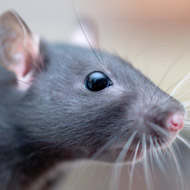
Animal welfare groups call for more action to reduce use
The number of experiments involving animals in the UK has fallen to its lowest level for eight years, according to a Home Office report, but animal welfare organisations say much more could be done to reduce the use and suffering of laboratory animals.
The report shows 3.79 million procedures on animals took place in Great Britain in 2017 - a four per cent fall on 2016 and the lowest number of procedures since 2010. Of these procedures, 50 per cent were experimental whilst the other 50 per cent were for the creation or breeding of genetically altered animals.
The majority of experimental procedures used mice, fish and rats, accounting for up to 87 per cent of experimental procedures in 2017. Whilst the number of primates used fell by 17 per cent from 2016, the number of procedures using horses rose by 18 per cent, in the most for the provision of blood products for diagnostic products.
In a press release, Jan Creamer of the National Anti-Vivisection Society said: “With advanced modern methods being more accurate and relevant than animal tests, the UK Government must do more to encourage researchers to adopt their use. A shift in policy and end to the secrecy surrounding animal tests is urgently needed to enable science to save lives – better for people and animals.”
The RSPCA also issued a press release, calling on the UK Government to make a small change to housing standards. Current Code of Practice allows laboratory rats to be housed in cages that are 20cm high, yet adults can rear up to 30cm.
“Claims that ‘everything possible is done to minimise suffering’ will ring hollow until all facilities using or breeding rats have moved to taller cages,” said Dr Penny Hawkins, head of the RSPCA Research Animals Department. “There is now sound scientific evidence that rats’ quality of life will suffer if they cannot stand upright, so we are calling for standards in the UK to reflect this. It’s time to stand up for rats.”



 The Veterinary Medicines Directorate (VMD) is inviting applications from veterinary students to attend a one-week extramural studies (EMS) placement in July 2026.
The Veterinary Medicines Directorate (VMD) is inviting applications from veterinary students to attend a one-week extramural studies (EMS) placement in July 2026.